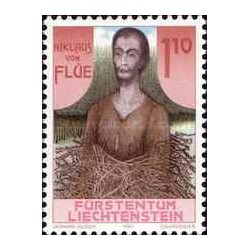- جدید
- ناموجود



توجه : درج کد پستی و شماره تلفن همراه و ثابت جهت ارسال مرسوله الزامیست .
توجه:حداقل ارزش بسته سفارش شده بدون هزینه پستی می بایست 100000 ریال باشد .
توجه : جهت برخورداری از مزایای در نظر گرفته شده برای مشتریان لطفا ثبت نام نمائید.
| Horace | |
|---|---|

Horace, as imagined by Anton von Werner
|
|
| Born | Quintus Horatius Flaccus December 8, 65 BC Venusia, Italy, Roman Republic |
| Died | November 27, 8 BC (age 56) Rome |
| Resting place | Rome |
| Occupation | Soldier, scriba quaestorius, poet |
| Language | Latin |
| Nationality | Roman |
| Genre | Lyric poetry |
| Notable works | Odes, Satires, Ars Poetica |
Quintus Horatius Flaccus (December 8, 65 BC – November 27, 8 BC), known in the English-speaking world as Horace (/ˈhɒrəs/ or /ˈhɔːrəs/), was the leading Roman lyric poet during the time of Augustus (also known as Octavian). The rhetorician Quintilian regarded his Odes as just about the only Latin lyrics worth reading: "He can be lofty sometimes, yet he is also full of charm and grace, versatile in his figures, and felicitously daring in his choice of words."[nb 1]
Horace also crafted elegant hexameter verses (Satires and Epistles) and caustic iambic poetry (Epodes). The hexameters are amusing yet serious works, friendly in tone, leading the ancient satirist Persius to comment: "as his friend laughs, Horace slyly puts his finger on his every fault; once let in, he plays about the heartstrings".[nb 2]
His career coincided with Rome's momentous change from a republic to an empire. An officer in the republican army defeated at the Battle of Philippi in 42 BC, he was befriended by Octavian's right-hand man in civil affairs, Maecenas, and became a spokesman for the new regime. For some commentators, his association with the regime was a delicate balance in which he maintained a strong measure of independence (he was "a master of the graceful sidestep")[1] but for others he was, in John Dryden's phrase, "a well-mannered court slave".[2][nb 3]
تشکر نظر شما نمی تواند ارسال شود
گزارش کردن نظر
گزارش ارسال شد
گزارش شما نمی تواند ارسال شود
بررسی خود را بنویسید
نظر ارسال شد
نظر شما نمی تواند ارسال شود

check_circle
check_circle















